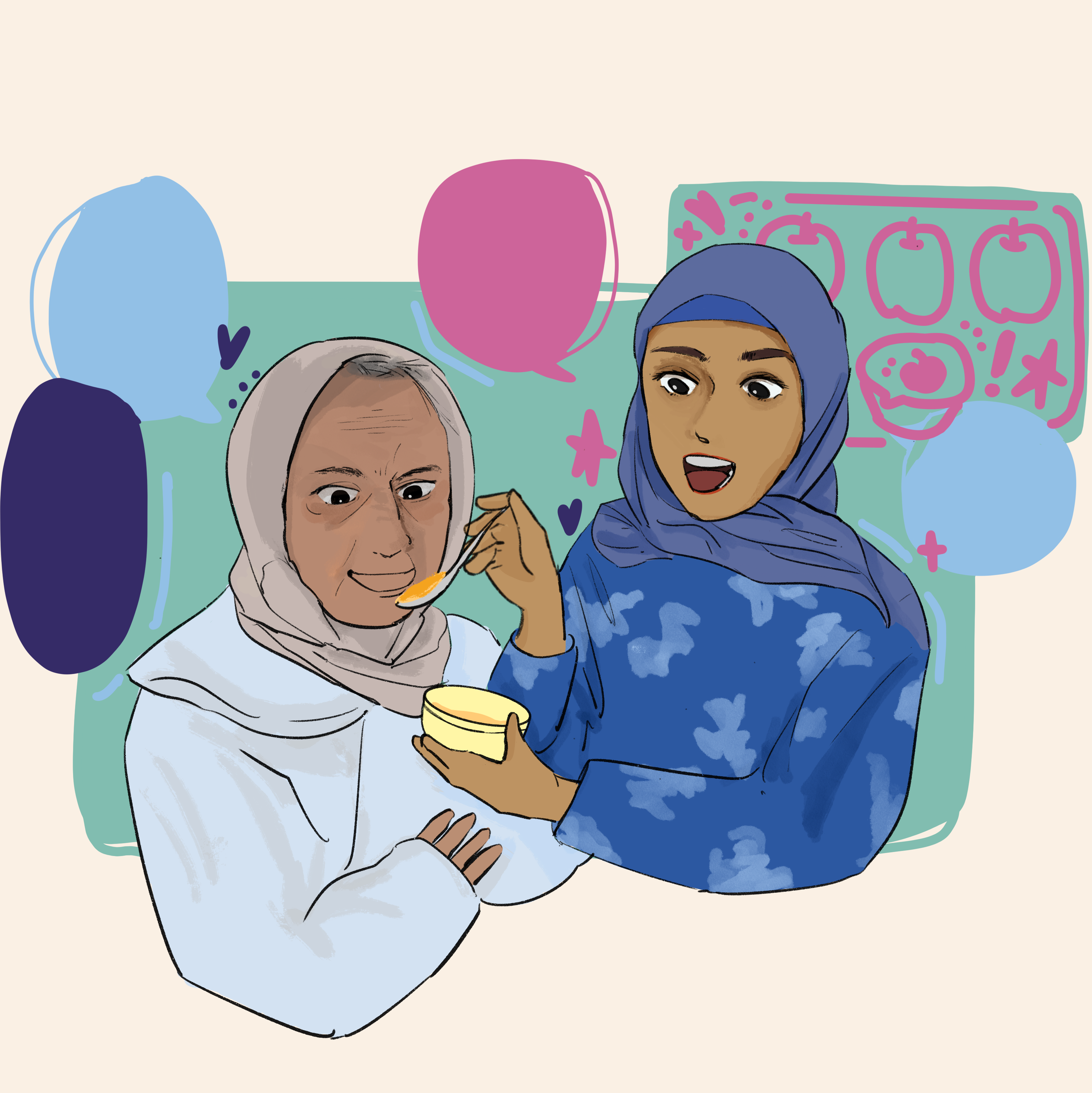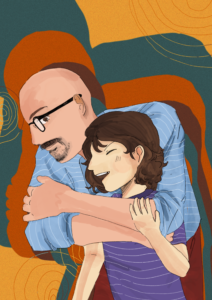When I was younger, and my mom would feed me my dinner, I used to always ask her why she opened her mouth when she brought the spoon to my lips. I was the one eating, not her, so why did she open her mouth with me? She never managed to give me a good answer why.
Now, I find myself in my mom’s shoes, instinctively and inexplicably opening my mouth as I feed my grandmother. And just like my mother, I cannot really explain what drives me to do so. It’s simply a manifestation of emotions deep within me: the need to protect and provide, along with boundless love. I’m not feeding a young child like my mother, but somehow, the act is the same. My grandmother has dementia, so in many ways, the disease has returned her to a childlike state. While at first she just forgot little things, eventually she forgot big things too. Today, we get excited if she remembers her own name.
Caring for my grandmother places a lot more responsibility on my family. A dementia patient like her needs round-the-clock care, which means my family and I are always coordinating schedules and timing our errands down to the minute to ensure she is never left home alone. It means less sleep on nights when her melatonin doesn’t kick in and doing the absolute maximum to be safe during the pandemic. There’s no way to sugarcoat it: Caring for her is hard.
When people see the challenges our family faces, they often offer advice about how we can have fun: telling us to take our grandmother with us on an outing or offering to watch her themselves so we can take a vacation that lasts longer than six hours. I know they mean well, but as her primary caretakers, we are the only ones who truly understand the hundreds of moving parts that go into the job, so we know these pieces of advice are completely unrealistic. When people unintentionally ignore the realities of our situation and encourage us to do the same, they come off as insensitive and ignorant about our lives. Their well-meaning input becomes an illustration of how little they understand the ins and outs of dementia patient care—of how little they understand my grandmother.
The problem is, people seem to think that for our family to be happy, we must have the experiences a typical family would have. But the reality is, my grandmother’s dementia isn’t going anywhere. It’s an illness that will only continue to get worse, and as a family we are limited by our responsibility to her. But that doesn’t mean we don’t find joy. Our joy simply deviates from the norm. It exists despite the coexistence of hardship.
People tend to minimize some stories to a tragic element. When I tell someone a funny story about my grandma, I’m met with only pity and people telling me, “That’s so sad.” Don’t get me wrong—dementia is a cruel illness that is painful to watch. But just because the illness’s progression is sad doesn’t mean our lives are too. And it doesn’t mean that the illness has defined our relationship as one of sorrow.
Rather, it’s done the opposite. I’m closer to my grandmother than I ever was before. The hardships of dementia patient care have fostered new opportunities for us to connect. The love I feel for her has grown with every nonsensical story she’s told me, with every incorrect name she’s called me, with every spoonful of applesauce I’ve fed her with my own hand. Watching her forget more and more with each day might hurt, and when she looks at me and tells me her mom is waiting for her to come home I feel a chisel crack open my heart, but that doesn’t change the fact that every second I spend with her is full of joy.
The coexistence of joy and the hardships of dementia is a truth people seem to have a hard time grasping. This misunderstanding is what triggers feelings of pity, discomfort, or awkwardness when I talk about my grandmother. For whatever reason, hardship is perceived as world-defining. But joy is not simply the absence of suffering. Joy is its own emotion that exists regardless of whether other emotions are present or not. And joy is always valuable and worth recognizing. Sometimes, when it is accompanied by hardship, I think it even tastes a little sweeter.
At the end of the day, my grandmother’s dementia is challenging both for her and for the rest of my family. But these challenges are integral to our family dynamic. So when it comes to caring for her, I’m not looking for pity or ways to pretend her dementia doesn’t make my family’s life more difficult. I’m just looking for support. Because despite all the pain, I would drop anything to care for her.
The happiness we find in each other may not be the one most people imagine, but it is happiness nonetheless. There is joy in the way she smiles at me when I kiss her on the forehead. There is joy in the way she still loves jewelry and anything sparkly. And there is joy in having her with me. So I really don’t need to ignore, or even overcome, all the obstacles that dementia has introduced in our lives to feel happiness.
Joy, for me, is intertwined with the instinctive need to protect, provide, and care that overcomes me as I spoon applesauce into my grandmother’s mouth; the emotions that part my lips and open my mouth as I feed her.
Joy, for me, is simply loving my grandmother. And even if she can’t remember who I am, I know she loves me too.






